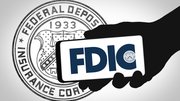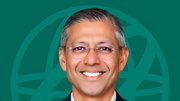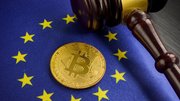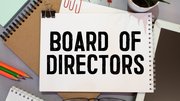News
S. African judge rules against businessman in PIN security case
July 31, 2003
JOHANNESBURG, South Africa -- Anil Singh, a Durban businessman who took on Diners Club in a mammoth civil trial, claiming 600 000 rand (about $76,032 U.S.) was withdrawn from his account without his knowledge, lost his case and now faces a legal bill in excess of 5 million rand ($673,400 U.S.)
According to a report in The Mercury, Durban High Court Judge Philip Levinsohn found it highly probable that Singh had given his card to members of a syndicate intent on defrauding Diners Club.
Based on Singh's "dishonest, untruthful and misleading" testimony, he ordered Singh to pay the 600 000 rand plus interest, the wasted costs of two adjournments, the financial institution's costs of two senior advocates and the entire bill of a two-week sitting in London.
The case revolved around money withdrawn using Singh's Diners Club card in 190 transactions from ATMs in London over a single weekend in March 2000.
Singh claimed that he had been in Durban that weekend and that he had not given his card or PIN to anyone. The money had been withdrawn in an "inside job," he said.
But Diners Club and Citibank, which processes Diners transactions in the UK, claimed that Singh must have given someone his card and the number.
The civil trial moved to London earlier this year for Singh to call expert witnesses from Cambridge University in an attempt to persuade Levinsohn that card security systems were vulnerable.
Two Cambridge researchers, Mike Bond and Piotr Zielinski, testified that -- despite security controls -- a bank insider could crack a card's PIN on an internal bank network in an average of 15 tries.
However, the claims were disputed by Diners Club and Citibank experts.
Because of concerns over the impact of revealing any possible card security weaknesses, the English court ruled that expert evidence be held in camera, a ruling which was extended when the case moved back to South Africa.
(See related story Evidence suppressed in S. African case; Diner's Club alleges businessman part of ATM scam)
In his July 30 judgment, Levinsohn appeared to shut the door on almost every avenue of appeal.
He found Singh to be a "thoroughly untruthful" witness and said he was "not impressed" with his expert witness, Dr. Ross Anderson, who had "feet of clay and manifestly aligned himself to Singh's case."
In contrast, he found those who had testified on behalf of Diners Club to be credible.
During the trial, Diners Club lawyers produced evidence of a syndicate operating out of Durban, whose members flew regularly to London for weekend trips, making multiple cash withdrawals using Diners Club cards while there.
Levinsohn said one of these people was Singh's brother-in-law, and there were cell phone records proving that he knew the others.
The judge also rejected Singh's "fall-back position" that he had not received a fair trial because certain witnesses had declined to answer questions.
At a time when banking security is in the spotlight, Diners Club was happy with the judgment, saying it confirmed the system of PINs was secure. Director Craig Bond said the company would continue to assist with the criminal investigation against Singh, who also faces charges relating to the issuance of two fake Diners Club cards in the names of Johannesburg-based attorney Andrew Turner and advocate Kevin Trisk, two members of the legal team representing Diners Club in the Durban civil trial.
 ChatGPT
ChatGPT Grok
Grok Perplexity
Perplexity Claude
Claude












